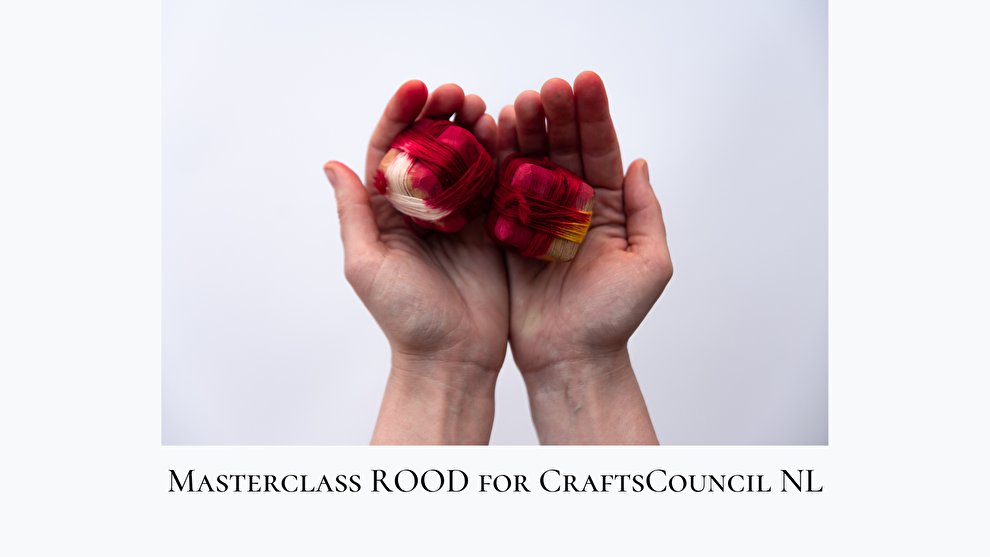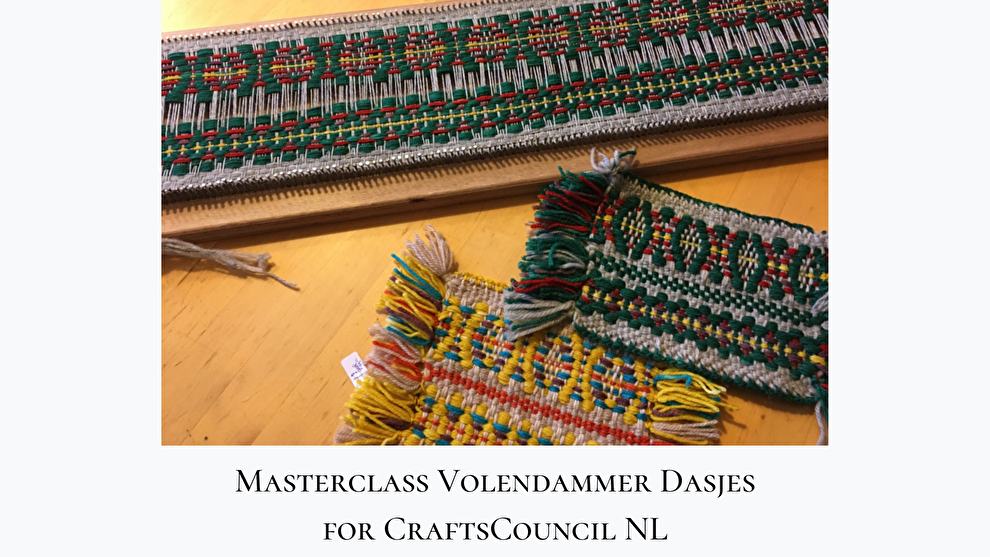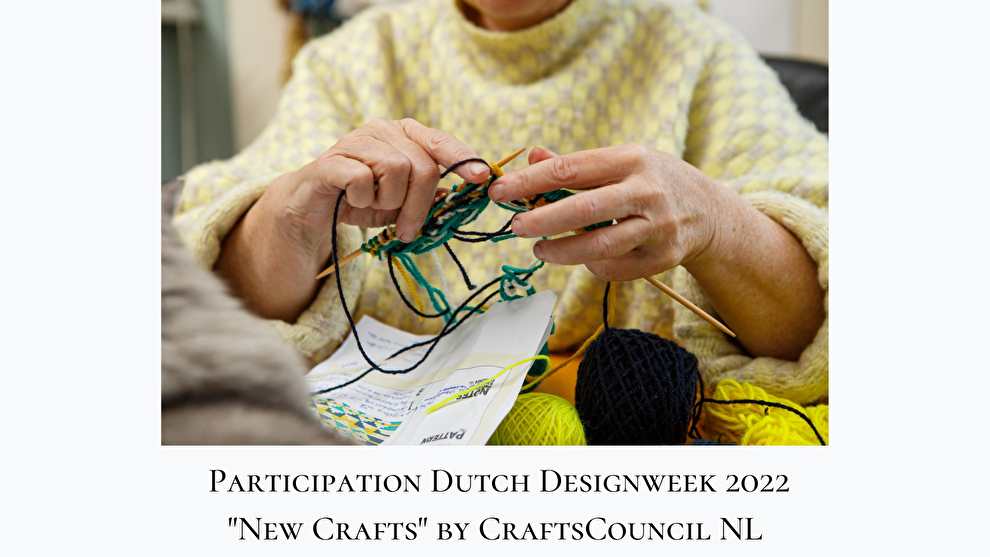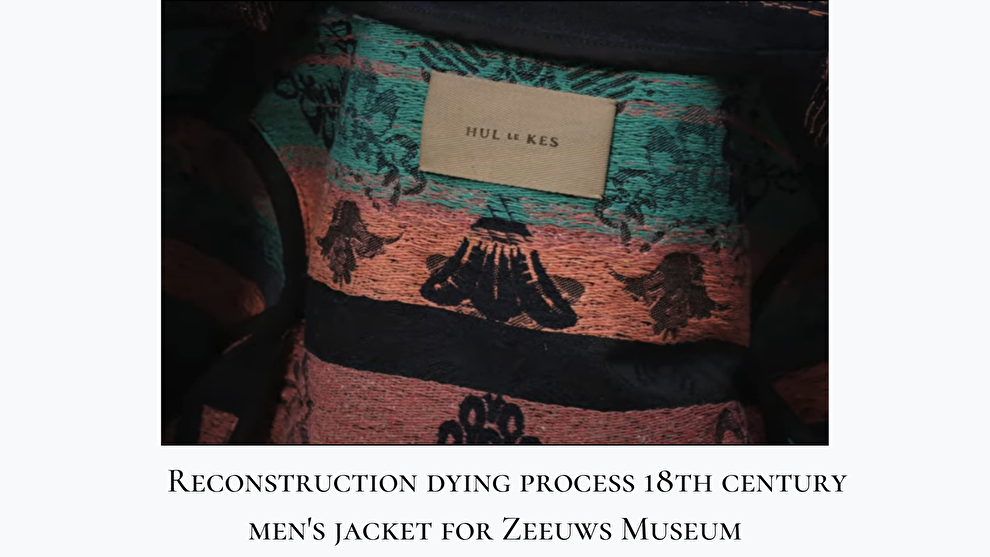
My name is Loret Karman and I am in charge of knitting academy De Amsterdamse Steek. That I refer to the school as an academy shows my ambition: hand knitting and dyeing on an academic level. Studying, researching, comparing, describing and naming those on whose shoulders we stand is important to me.
I come from a family tradition where creating was a valued competence and I learned to knit when we moved to the Netherlands. At that time I was 10 years old and already fond of my hand-working aunts. In the 1970s I was trained in craftsmanship by Nel Rol, Fenny Nijman, Wooz Lutz and Miep Spee. Since then I have continued to study and develop in both textile dyeing and hand knitting. I had my own studio all the years between my education and starting De Amsterdamse Steek, sometimes making small productions in collaboration with others. My social career went through a different track until my 50th birthday. I worked with youth, policy and innovation, with the safety of Amsterdam's inner city and with the restructuring of adult education. However, the love for textiles and making never disappeared and actually only became stronger and stronger.
In the 1990s I had children and I earned much more with the work I did than I ever could with my love of craft and art. Our three children came from a lesbian relationship, and so there was a task. It proved impossible for the second mother to establish a (legal) relationship with her children. We picked up the gauntlet and, together with a couple of friends, filed a lawsuit against the State of the Netherlands. This lawsuit went all the way to the Supreme Court and resulted in a political lobby that eventually led to a change in the law. At the same time as enabling adoption by gay couples, gay marriage also became legally possible. It is the greatest achievement we have ever achieved.
Why am I writing this in my profile? To illustrate why I think it is important to run a school where everyone feels welcome and respected. Where there are rules to make everything workable, but space to seek the freedom you need to develop within the school.
For me, the colors of the culture, people and nature of Papua (where I was born) and of the Antilles (where I grew up) are among my first memories. That the relationship between the Netherlands and Papua and the Antilles is one where exploitation has caused a lot of pain is something I was confronted with from an early age onwards. That being a white girl with highly educated parents gave me some substantial privileges, is something I realize every day.
Right now I am involved, by both designers and museums, in researching and implementing projects that involve dyeing small amounts and knitting one-off pieces. I am head of knitting academy De Amsterdamse Steek, which teaches knitting and dyeing at all levels. Transferring subject knowledge and motivating students to rise above themselves in their work is as important to me as continuing to develop my own skills in this field.
All teaching materials and parcels are created and put together each week by my incredibly important team of "draaimeisjes" ("turn girls"). Seva Maartense and Nicoline Lint meet every Tuesday, over lots of cups of tea, to spin balls of yarn together and do all the routine chores behind De Amsterdamse Steek.
Rita Huijink is my knitting buddy with whom I started De Amsterdamse Steek. Rita retired after several years because her other work demanded her attention. She set up the wonderful program 'historical knitting'. There are still questions about the program regularly, but it is not currently part of De Amsterdamse Steek. Rita came up with the name of our school. De Amsterdamse Steek resides in a building surrounded by architecture of De Amsterdamse School. Our logo was designed in a font and color scheme that was popular in the heyday of this style.
Do you have a question, comment and/or point of improvement for De Amsterdamse Steek? Please contact us via the contact form. We are very grateful for all your input, as it allows us to grow.
Earlier Projects:






